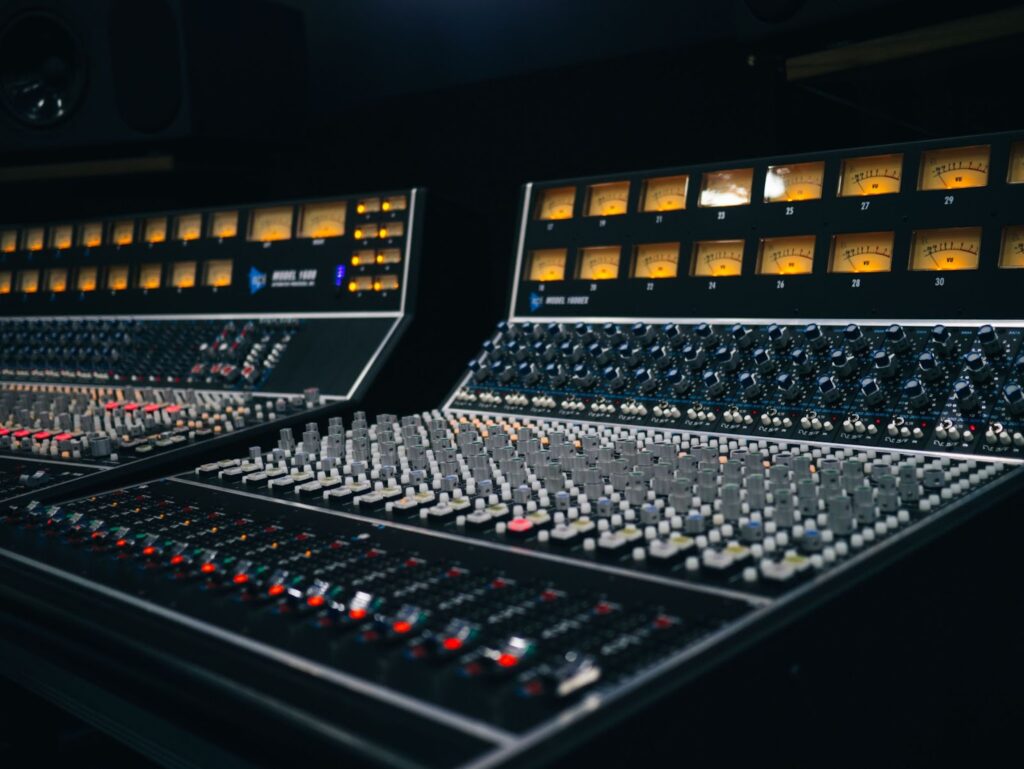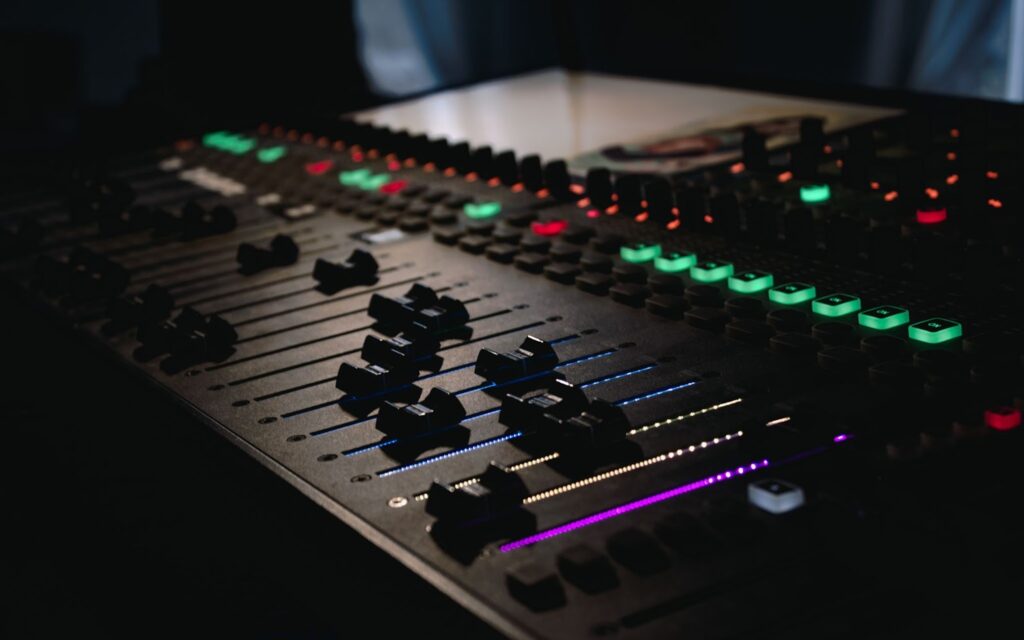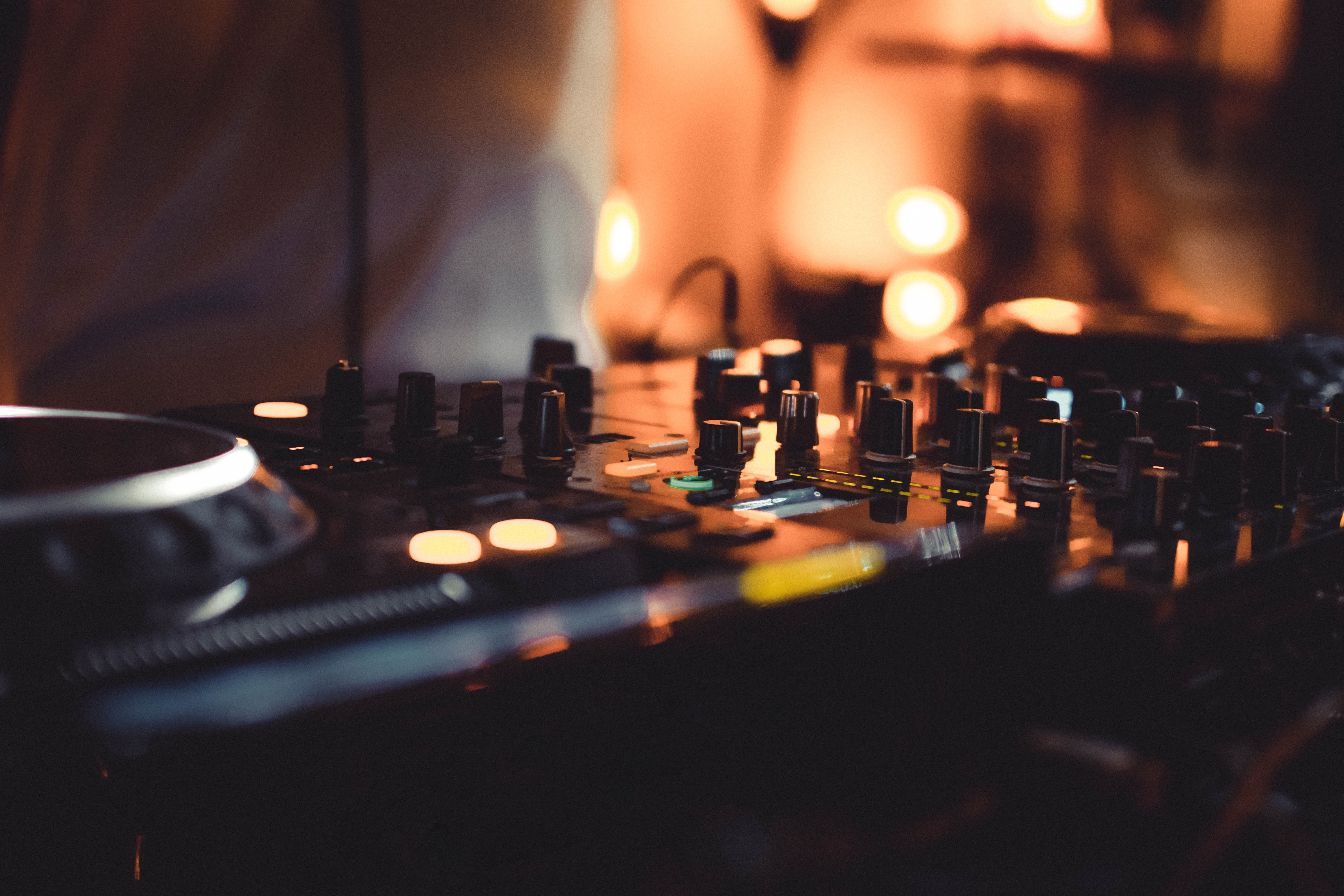Aspiring DJs and music enthusiasts know how critical it is to choose the right type of mixer for their needs and preferences. This article will help you understand the fundamental differences between analog and digital mixers, highlight their respective advantages and disadvantages, and provide practical tips on how to select the best option for different situations.
| Parameter | Analog DJ Mixers | Digital DJ Mixers |
| Connecting Inputs | Limited inputs and outputs; often requires additional preamps or converters for more complex setups. | More inputs and outputs, often with built-in preamps and converters |
| Adjusting Channel Settings | Dedicated knobs and faders for each channel, less precise and consistent | Digital controls with more precision and consistency |
| Setting Up Sends | Limited send options; often requires external processors for more complex setups. | More send options, often with built-in effects processing |
| Setting Up Groups | Limited group options; often requires external processors for more complex setups | More group options, often with built-in effects processing |
| Accessing Effects Processing | Limited built-in effects processing; often requires external processors | More built-in effects processing, often with more options and control |
Analog vs. Digital DJ Mixers: Definition and Differences
First, let’s define what analog and digital DJ mixers are.

Analog Mixer
Analog mixers are based on electrical signals that are manipulated by physical components, such as resistors, capacitors, and transistors. The audio signals are sent through the mixer’s channels, where they are amplified, equalized, and panned using dedicated knobs and faders. The mixer then combines the signals into a single output that can be recorded, played back, or sent to a sound system.
Analog mixers are known for their warm, rich, and natural sound, which is the result of the analog circuits’ nonlinear and harmonic behavior. The circuits add subtle distortion, harmonic distortion, and noise that can enhance the overall sound quality and make it more pleasing to the ear. Analog mixers are also highly versatile and flexible, allowing DJs to customize their sound and create unique mixes. However, analog mixers can be limited in terms of features and functionality. They typically have fewer inputs, outputs, and effects than digital mixers and are less precise and consistent in their performance.

Digital Mixer
A digital mixer uses digital signal processing (DSP) algorithms to convert audio signals into a digital format, which allows for more precise and consistent performance. The DSP algorithms also eliminate noise, distortion, and other unwanted artifacts from the audio signals, resulting in a cleaner and more polished sound.
Digital mixers offer a wide range of features and functionality compared to analog mixers. They come with built-in effects, EQs, filters, and sampling capabilities and often include software that allows DJs to record, edit, and share their mixes easily. However, digital mixers can be more expensive and complicated to use than analog mixers. They require a computer or mobile device to operate, which can be less convenient and less reliable than using a standalone mixer.
Pros and Cons of Analog DJ Mixers
Analog mixers have been around for decades and are still popular among DJs who prefer their unique sound and feel. Here are some of the pros and cons of using an analog mixer:
Pros
- Warm, rich, and natural sound
- Versatile and flexible, allowing DJs to customize their sound and create unique mixes
- Simple and straightforward to use, with dedicated knobs and faders for each channel
Cons
- Limited in terms of features and functionality
- Fewer inputs, outputs, and effects than digital mixers
- Less precise and consistent in their performance
Pros and Cons of Digital DJ Mixers
Digital mixers, on the other hand, are relatively new to the market but have quickly become popular among DJs who want more advanced features and functionality. Here are some of the pros and cons of using a digital mixer:
Pros
- Wide range of features and functionality, including built-in effects, EQs, filters, and sampling capabilities
- Highly precise and consistent in their performance, thanks to the use of DSP algorithms that eliminate noise, distortion, and other unwanted artifacts
- More control over the audio signals, allowing DJs to fine-tune their mixes and achieve a more polished sound
Cons
- More expensive and complicated to use than analog mixers
- Require a computer or mobile device to operate, which can be less convenient and less reliable than using a standalone mixer
- It can be overwhelming for new users due to the number of features and effects
Choosing the Right DJ Mixer: Factors to Consider
So, which type of mixer is right for you? Here are some factors to consider when making your decision:
Your Music Style and Genre
Different music styles and genres require different mixing techniques and tools. Analog mixers may be better suited for genres that rely on warm, organic sounds, such as funk, soul, and jazz, while digital mixers may be more suitable for genres that require precise, punchy sounds, such as EDM, techno, and hip-hop.
However, it’s worth mentioning that many DJs use a combination of both analog and digital mixers, depending on the situation and their personal preferences. Some DJs use an analog mixer for its warm sound and tactile feel but also use a digital mixer for its advanced features and effects.
Your Skill Level and Experience
Beginner DJs may prefer analog mixers because they are generally simpler and more straightforward to use. Analog mixers often have dedicated knobs and faders for each channel, which makes it easier to understand the signal flow and adjust the sound. Analog mixers also tend to have fewer features and effects than digital mixers, which can be less overwhelming for new users.
On the other hand, more experienced DJs may prefer digital mixers because they offer more advanced features and functionality. Digital mixers often come with built-in effects, EQs, filters, and sampling capabilities, which can help DJs create more complex and polished mixes. Digital mixers also offer more precision and control over the audio signals, allowing DJs to fine-tune their sound and achieve more professional sound quality.
Your Budget and Future Goals
Analog mixers are generally less expensive than digital mixers. If you’re just starting as a DJ and have a limited budget, an analog mixer may be a good option.
However, if you plan to pursue DJing as a career or want to take your skills to the next level, a digital mixer may be a better investment. Digital mixers offer more precision and control over the audio signals, allowing you to fine-tune your sound and achieve more professional sound quality.
It’s also worth considering your future goals when choosing a mixer. If you plan to collaborate with other DJs or perform in larger venues, a digital mixer may be more suitable because it offers more inputs and outputs and can handle more complex setups. On the other hand, if you prefer a more hands-on and tactile approach to mixing and want to focus on the artistry and creativity of DJing, an analog mixer may be a better fit.
Conclusion
In conclusion, both analog and digital mixers have their pros and cons. Ultimately, the decision between analog and digital mixers depends on the individual DJ’s needs, preferences, and circumstances. It’s essential to consider factors such as music style, skill level, budget, and future goals when choosing a mixer. It’s also helpful to try out different mixers and see which one feels most comfortable and intuitive to use. We hope this article has helped you understand the fundamental differences between the two types of mixers and provided some valuable tips on how to choose the right one for your music style, skill level, and budget. Happy mixing!
